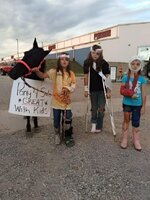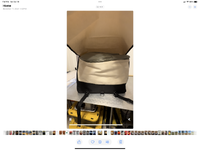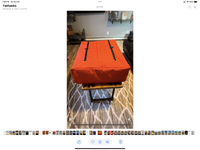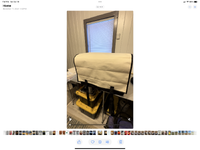yycyak
Lil-Rokslider
- Joined
- Apr 1, 2018
- Messages
- 268
To cut right to it: I’ve had a heck of time finding info on “How” to hunt off a horse. It seems that the majority out there learn this stuff either by being born into a ranch family, or working as a guide and learning that way.
I’m neither. So that sucks. And it’s bloody hard to find decent info on the actual “How the heck do I do this?” part of things.
So this thread will (1) Document all the dumb things I’ve done trying to figure this game out, and (2) Hopefully provide some helpful How-To for the people out there who want to give this a shot. I
Full disclosure: I’ve had a ton of help by reading posts and reaching out to roksliders like @Pony Soldier, @missjordan, @Travis Hobbs, @wymtnpounder edit: Can't believe I forgot @rayporter. There’s some really squared away people on this forum (I’m not one of them) and it’s worth asking them for help. @Chase0109 thread https://rokslide.com/forums/threads/how-to-hunt-with-horses.158633/#post-1503634 was a great resource too.
About Me:
I’m a late 30’s self-employed office weenie. I live in the suburbs, have young kids, a mortgage, a budget, and have time commitments that take me away from hunting. I juggle as much as I can. I’ve always wanted to horseback hunt the backcountry, and over the last 2 years started working towards that goal. I’m no expert – far from it. I don’t really have any friends who horseback hunt either.
Due to personal failings, my focus is always the 80/20 Rule: Give me something functional, that works 80% of the time, and be happy with that. Obsessing over the 20% is bad, and to be avoided at all costs.
My approach to horseback hunting follows this: Keep it functional, and make sure whatever you’re doing mostly works most of the time. No doubt there’s a bunch of fancier ways of doing things out there, but I’m limited in time/competence/money, or often a combination of all three.
Anyway, hopefully by posting all the dumb things I've done and continue to do here, it might help some people in the future who want to try their hand at this horseback hunting thing.
I’m neither. So that sucks. And it’s bloody hard to find decent info on the actual “How the heck do I do this?” part of things.
So this thread will (1) Document all the dumb things I’ve done trying to figure this game out, and (2) Hopefully provide some helpful How-To for the people out there who want to give this a shot. I
Full disclosure: I’ve had a ton of help by reading posts and reaching out to roksliders like @Pony Soldier, @missjordan, @Travis Hobbs, @wymtnpounder edit: Can't believe I forgot @rayporter. There’s some really squared away people on this forum (I’m not one of them) and it’s worth asking them for help. @Chase0109 thread https://rokslide.com/forums/threads/how-to-hunt-with-horses.158633/#post-1503634 was a great resource too.
About Me:
I’m a late 30’s self-employed office weenie. I live in the suburbs, have young kids, a mortgage, a budget, and have time commitments that take me away from hunting. I juggle as much as I can. I’ve always wanted to horseback hunt the backcountry, and over the last 2 years started working towards that goal. I’m no expert – far from it. I don’t really have any friends who horseback hunt either.
Due to personal failings, my focus is always the 80/20 Rule: Give me something functional, that works 80% of the time, and be happy with that. Obsessing over the 20% is bad, and to be avoided at all costs.
My approach to horseback hunting follows this: Keep it functional, and make sure whatever you’re doing mostly works most of the time. No doubt there’s a bunch of fancier ways of doing things out there, but I’m limited in time/competence/money, or often a combination of all three.
Anyway, hopefully by posting all the dumb things I've done and continue to do here, it might help some people in the future who want to try their hand at this horseback hunting thing.
Last edited:




